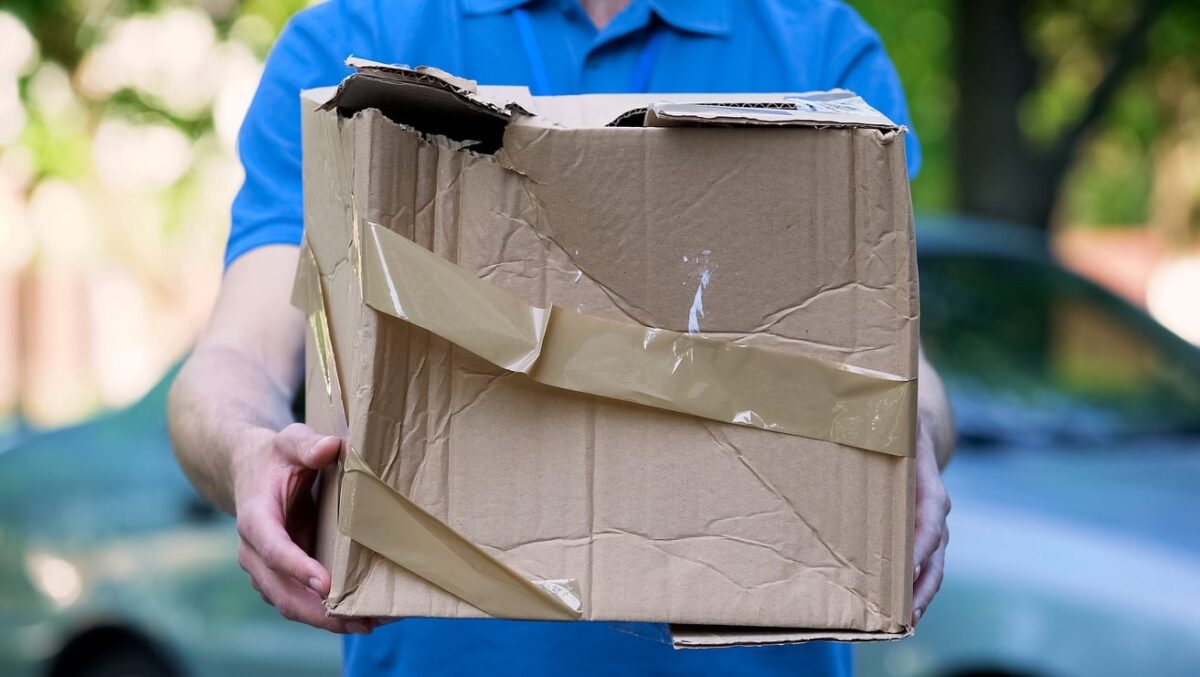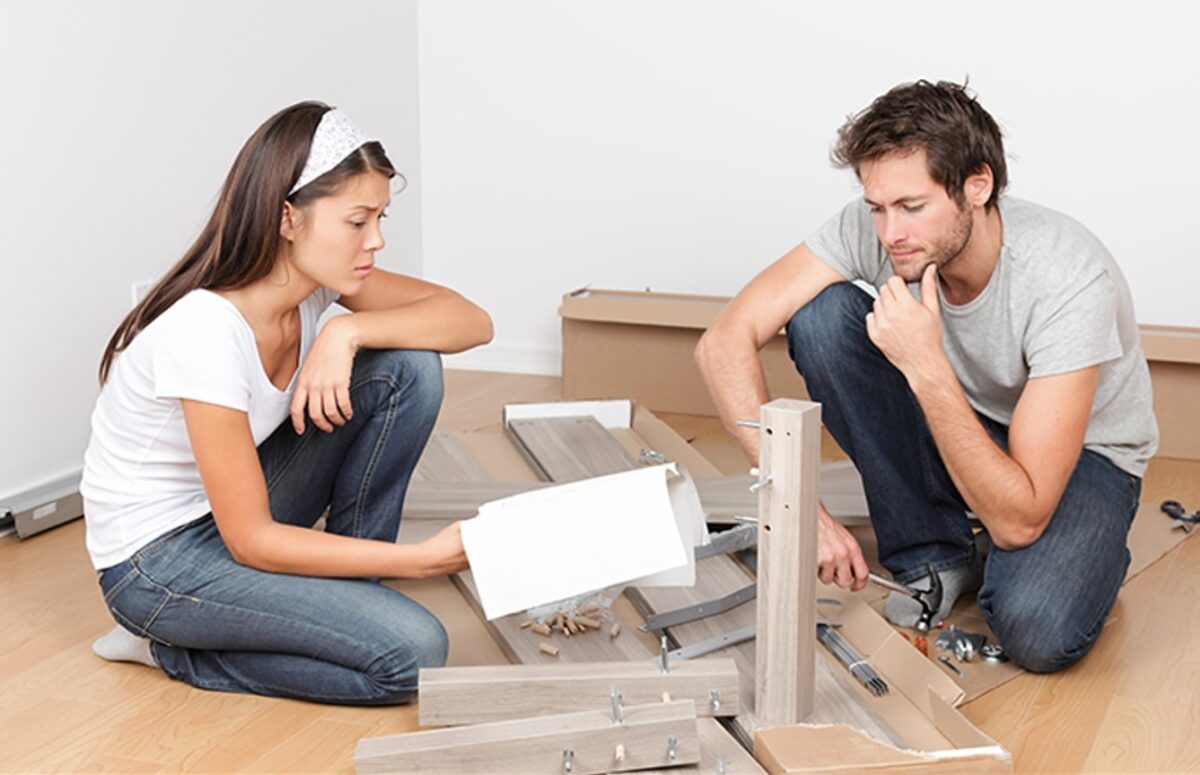Whether it’s your first home or your third, moving into a new place is both exciting and stressful. All the tasks that lead up to moving day can be overwhelming, but the process doesn’t end when all of your boxes are brought into your new place. In fact, the settling in process can sometimes take just as long and be as stressful as the move itself if you don’t have a plan in place.
Luckily, there are plenty of ways you can simplify the process so long as you have a checklist and/or guide in place to help prioritize your tasks. It doesn’t matter if you’re downsizing or upgrading your home, these steps can make the week after a move more manageable.
Check All Your Boxes
Hopefully, you planned your move out and created a detailed inventory of all everything you’re bringing with you…right? If you didn’t, you should still have a general idea of how many boxes you packed and their contents. Of course, it’s better to have a full inventory of everything, especially if you hire professional movers. That way you can keep track of everything and immediately see if anything is missing or damaged. Ideally, everything should get from one place to another in one piece, but there’s always the chance that something happens along the way.
Your first order of business is to make sure all of the boxes are accounted for. If something is missing, notify the crew immediately and check the truck together to make sure it was unloaded. Once the movers leave, inspect the boxes for visual damage or other signs of mistreatment. Make sure you also check the contents of the box for broken or damaged goods and then note damage any you notice. You can then reach out to the NJ movers to resolve the situation. The best part is that even if you didn’t opt for moving insurance, you can still receive some compensation as your belongings are automatically insured $0.60 per item per pound. It’s not much, so if you’re moving a lot of high value it1ems, it’s worth it to pay extra for moving insurance.
Turn on Your Utilities
You really don’t want to be without water or electricity for any amount of time. The best time to have scheduled this task was before you moved into your new place. That way you would already have electricity and running water by the time you arrived. But if you haven’t done it, don’t delay. Call up your power and water providers as soon as possible and have it turned off. If you also have a gas connection, make sure to call your gas provider. In some cases, your electricity and gas provider might be the same company.
Once you have the main utilities turned on, you can then get your internet and/or cable provider up and running. You often cannot get these activated until you move into your new home since a tech has to do the installation. Make sure to set aside your whole day for the process as even when you receive a window of time, the tech might come earlier or later than expected.
Clean Your House (Or Hire a Cleaning Service)
Even if the previous owners of your NJ home cleaned before they moved out, it’s still a good idea to give your new place a deep cleaning. After all, you and the NJ movers will have tracked in a lot of dirt and debris while they’re unloading the truck. Before you unpack all your boxes, your first order of business is to find your cleaning supplies and give everything a good wipedown.
If you don’t have the time or energy to clean yourself, hire a cleaning service! It is an extra cost, but they will have professional equipment and cleaning solutions to really get your new house squeaky clean. Make sure they pay special attention to things like the bathroom, cabinets, drawers, shelves, baseboards, etc. There’s nothing quite like a freshly cleaned house to improve your mood.
This is also a great opportunity to inspect your house for any issues like water damage, leaky pipes, pest infestations, doors that don’t close right, etc. Make a note of any issues you find and then do some research to find a great plumber, electrician, exterminator, or handyman to help you fix it as soon as possible.
Locate All the Shut-Off Valves
It’s fundamental that you know exactly where the shut-off valves are located now so that if you need to turn anything off, you’re not scrambling to find it in the future. Different houses will have different layouts and placements, but you should have shut-off valves for water and electricity. If you have a gas stove, there will also be a valve for your gas.
Each line should have a few separate valves so locate them all. For example, your toilet will have a separate valve from your kitchen sink. On the other hand, you’ll have a circuit breaker for your electricity that should have multiple switches. Check each of the switches and label them once you figure out which room/area they cover. If your breaker trips in one room, you’ll know exactly which one to turn on to get the power back.
Unpack Essentials
You might want to just relax once you’ve made it to your new home, but you should absolutely start unpacking essential items as soon as possible. Focus on the bedroom and bathroom if you only want to do the bare minimum. For your bedroom, assemble your bed if necessary and unpack your bedding so you can prepare your bed for the night ahead. You should also take out your clothes for the next day so you don’t have to rifle through your overnight bag.
After that, unpack your bathroom box and take out the shower curtain, towels, and any toiletries you might need. There’s nothing quite like a warm shower after a hard day’s work to wash away your stress. Of course, you also want to have a roll of toilet paper ready, some hand soap, and a plunger, just in case.
If you have more energy, unpack your kitchen boxes. You don’t have to cook on moving day, but it is nice to have a home cooked meal the first week in your new New Jersey home. There’s no need to unpack everything, but you should take out a pan, a pot, some dishes, silverware, and a chef’s knife. You might also want to unpack a few of your favorite snacks and drinks (especially your favorite coffee).
Childproof Your Home
Babies and toddlers love to get into everything and they don’t really know what items are dangerous and what are not. To prevent them from potentially hurting themselves you will need to go through and childproof your new home. This is a series of steps to identify typical household hazards and eliminate the potential threats.
Start your child proofing process in the room your child will spend most of their time. This will likely be the nursery. Leave two items in the crib – your baby and a fitted mattress sheet. From there, secure the changing table so it doesn’t accidentally tip over, cover up any electrical outlets, and add cordless blinds and window guards.
After that, move on to the other rooms and make sure all electrical outlets within their reach are covered and have childproof locks on cabinets or closets that might contain cleaning supplies or other chemicals. If your child likes putting everything into their mouth, block off areas that have small items like nails, screws, plastic bits, etc.
Finish Unpacking
Once you have all the pressing tasks completed, take your time and finish unpacking. Much like packing, unpacking can be done in stages so take your time. Go by room and unpack boxes that have somewhat important items in them and work your way to least important/decorative.
You can get the job done quickly by hiring professional unpackers , but it will cost you money. Your next best bet is to invite friends and family over for an unpacking party. That way you can chat, share memories, enjoy some food and drink, all while getting the job done. Of course, the second way will take longer, but it will be a lot more fun for you and your family!
Recycle Your Packing Materials
Unpacking will leave you with plenty of materials you won’t need. Many boxes will be in such bad shape that you won’t be able to reuse them. Regardless of the shape these boxes are in, you will need to break them all down so they are flat either for recycling or storage. You should only keep boxes that are in good shape and only if you believe you will be using them in the near future. Otherwise, consider reselling them on sites like Facebook or Nextdoor or, if you notice someone moving in your neighborhood, offer your boxes to them.
Besides boxes, you’ll also have a glut of other supplies like bubble wrap, packing paper, newspapers, and so on. These can come in handy in the future, so hold on to the ones that are still in good condition. You can hang on to these for the next time you move or even have them on hand if you have plans on buying fragile items from a local store.
Greet Your Neighbors
You’re the new kid on the block so once you’ve settled in, you should take some time to get to know your neighbors. Not only is it good manners, it can also help you start your relationship with your neighbors on the right foot. Make sure to bring everyone in your family if you can. Even if your kids are a bit shy, it’s good for people to know what to expect. These first introductions don’t have to be long!
Once you have done the initial introduction, consider having a housewarming party and inviting your neighbors. That way, you can get to speak with them in a more relaxed environment. And if they have children that are similar in age to your own, invite them over as well so your kids can potentially make some new friends.
Enjoy Your New Home
Finally, make sure to enjoy settling into your new home! Take advantage of whatever features it has that you might not have had at your old place whether that’s a beautiful backyard, a larger kitchen, more space, whatever! And don’t forget to decorate your new place to fit your style. Paint your walls, pick some nice curtains or throw pillows for the living room, and choose some artwork!
Are you making a move to a new place in New Jersey? Then give NJ Great Movers a call! We can help with every aspect of the move including unpacking. Just let us know what you need and we’ll walk you through the process.

